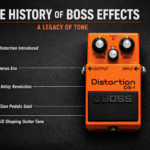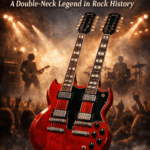In the heart of the United Kingdom lies a city whose name resonates far beyond its geographic confines—a city renowned not only for its industrial past and iconic football clubs but also for the pulsating rhythms that have emanated from its streets. Manchester, a hub of history, culture, and creativity, stands as a testament to the remarkable power of music to shape a city’s identity and influence the world. From the gritty alleys that nurtured the post-punk movement to the grand stages that witnessed the rise of Britpop, Manchester’s musical legacy is a vibrant tapestry woven from the threads of innovation, rebellion, and sheer passion.
This article embarks on a journey that transcends time and genre, navigating through the rich soundscape of Manchester’s finest bands. Each chord, lyric, and beat that emerged from the city’s depths has left an indelible mark on the trajectory of music history. This journey will traverse the transformative eras that birthed not only genre-defining bands but also cultural movements that resonated globally.
With every note, Manchester has crafted a unique narrative reflecting the city’s resilient, progressive, and ever-evolving spirit. The sonic landscape is a mirror to the urban tapestry, reflecting the stark contrasts of a city steeped in history yet always looking forward. The bands that emerged from Manchester have not only created music but also a sense of belonging, uniting fans across generations and continents under the banner of their distinctive sounds.
As we embark on this sonic odyssey, we invite you to immerse yourself in the melodies and stories that have shaped Manchester’s identity. From the pioneers who laid the foundation to the modern marvels pushing boundaries, each band is a chapter in a story that showcases the city’s enduring impact on the world of music. Manchester’s finest bands are more than just musical acts; they are a testament to the city’s resilience, creativity, and its ongoing commitment to shaping the soundtrack of our lives.

I. The Pioneers of Post-Punk:
A. Joy Division: The Enigma of Intensity
The late 1970s marked a pivotal era for the global music scene, and at the heart of Manchester’s musical transformation stood Joy Division—a band that would defy conventions and forge a sound unlike any other. Joy Division’s journey began with the meeting of minds in the bleak landscapes of post-industrial Manchester. Their formation, comprising vocalist Ian Curtis, guitarist Bernard Sumner, bassist Peter Hook, and drummer Stephen Morris, heralded the emergence of a musical force that would leave an indelible mark.
Joy Division’s signature sound was characterized by its enigmatic blend of post-punk, new wave, and elements of electronic music. Curtis’s haunting and emotionally charged vocals, delivered with an almost poetic introspection, became the focal point of their music. Songs like “Love Will Tear Us Apart” and “Transmission” showcased their distinct ability to infuse raw emotion into their sound, evoking a sense of vulnerability that resonated deeply with their audience.
Beyond their music, Joy Division’s aesthetic was marked by striking visual elements, often associated with the iconic artwork of Peter Saville. The synergy between their sonic and visual identity created a complete artistic experience that transcended the boundaries of music.
Tragically, the band’s ascent was cut short by the untimely death of Ian Curtis in 1980. Curtis’s struggles with depression and epilepsy culminated in his tragic suicide, leaving a void that shook the music world. Despite their brief existence, Joy Division’s influence endured, shaping the course of post-punk and alternative rock. The surviving members went on to form New Order, carrying forward the legacy of Joy Division’s experimentation and innovation.
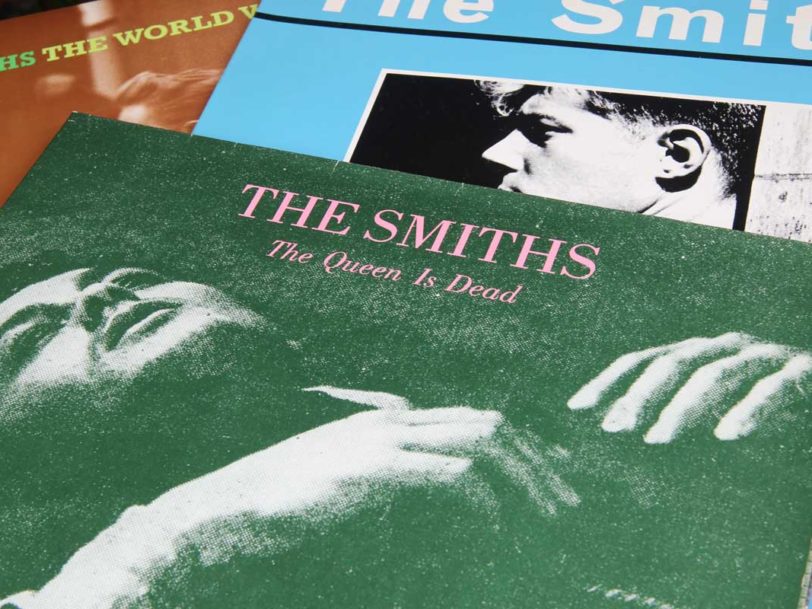
B. The Smiths: Crafting Sentiments with Sound
As the echoes of Joy Division’s haunting melodies still reverberated through Manchester’s streets, another iconic band was poised to emerge, armed with a distinct sound and lyrical prowess—The Smiths. Formed in 1982, The Smiths were the brainchild of vocalist Morrissey and guitarist Johnny Marr. Their collaboration would yield a body of work that resonated with the essence of British youth and the sentimentality of melancholy.
The Smiths’ music was characterized by its jangly guitar melodies, intricate arrangements, and Morrissey’s poetic and often wistful lyrics. Songs like “This Charming Man” and “There Is a Light That Never Goes Out” became anthems for a generation navigating the complexities of life and love. Morrissey’s enigmatic stage presence and distinctive vocal delivery further solidified The Smiths’ status as a band with a cult-like following.
Their impact extended beyond the confines of music, as Morrissey’s lyrical themes of alienation, desire, and nostalgia resonated with listeners on a deeply personal level. The Smiths’ discography delved into a myriad of emotions, crafting a unique narrative that bridged the gap between the mundane and the profound.
However, internal tensions eventually led to the band’s dissolution in 1987, leaving behind a legacy that continues to influence indie rock and alternative music. The Smiths’ ability to marry melancholic introspection with dynamic musical arrangements laid the foundation for an entire subgenre of British music and solidified their position as one of Manchester’s—and the world’s—most celebrated bands.
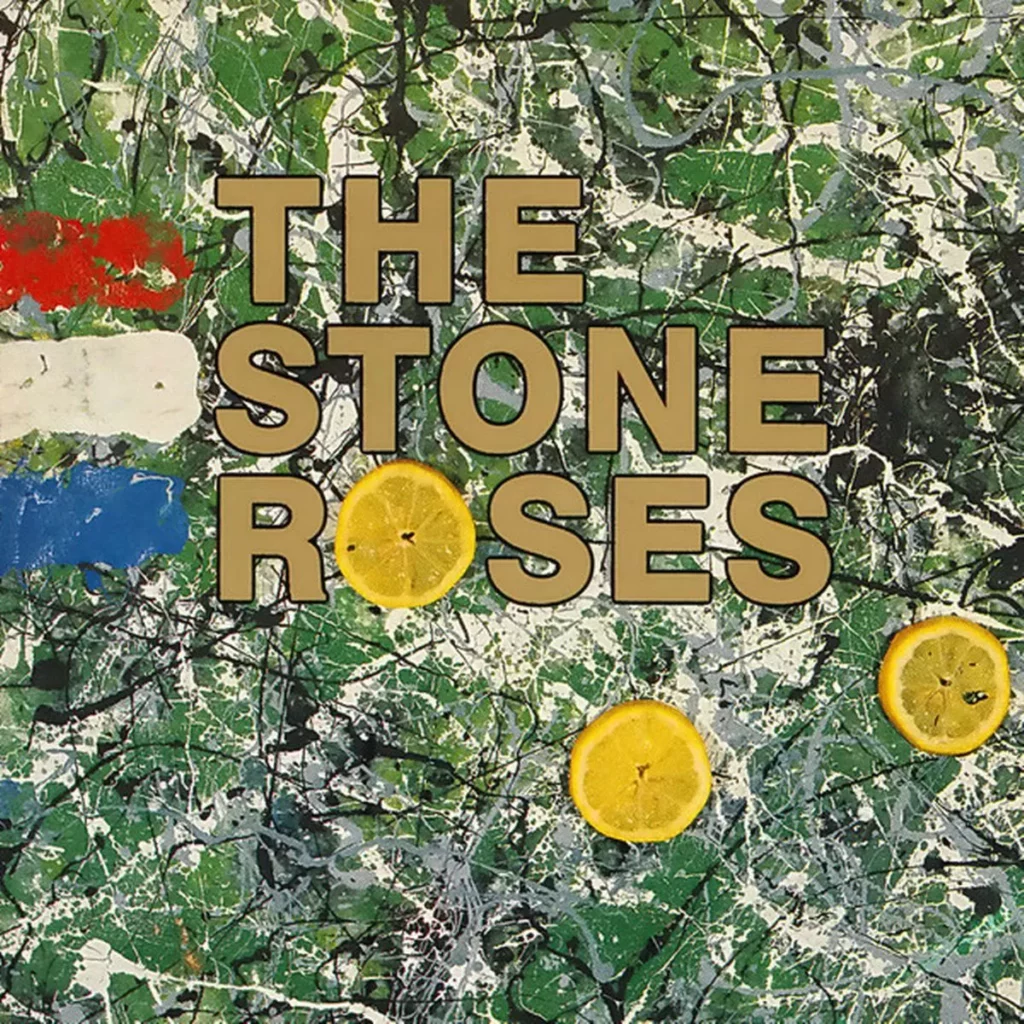
LISTEN TO THE STONE ROSES HERE
II. The Madchester Movement: Groove and Ecstasy
A. The Stone Roses: Captivating the Spirit of an Era
The late 1980s witnessed the emergence of a musical phenomenon that would come to define an entire era—a movement that encapsulated the free-spiritedness and hedonism of the times. Central to this movement were The Stone Roses, a band that seamlessly blended the swagger of rock with the euphoria of dance, giving birth to what would later be known as the Madchester scene.
The Stone Roses’ self-titled debut album, released in 1989, ignited a cultural spark that reverberated far beyond Manchester. Their music was characterized by catchy guitar hooks, infectious rhythms, and a fusion of rock and dance elements. Tracks like “She Bangs the Drums” and “I Wanna Be Adored” became instant anthems, their melodies embodying the carefree spirit of a generation.
Beyond their music, The Stone Roses represented a lifestyle—a movement that celebrated eclecticism, unity, and the allure of the dancefloor. Their influence extended to fashion, art, and even the rave culture, as they became emblematic of the cultural landscape of late ’80s Britain.
Despite internal conflicts and legal battles with their record label, The Stone Roses left an indelible mark on the music scene. Their legacy endured not only through their iconic tracks but also through their influence on subsequent bands, solidifying their status as pioneers of the Madchester movement.

B. Happy Mondays: Groove-Fueled Revelry
If The Stone Roses were the vanguard of the Madchester sound, then Happy Mondays were its unruly, party-fueled heartbeat. Formed in the early ’80s, Happy Mondays were a band that transcended musical genres, embracing a chaotic blend of rock, dance, funk, and even elements of psychedelia.
At the forefront of Happy Mondays was frontman Shaun Ryder, whose enigmatic persona and lyrical audacity elevated the band’s identity. The band’s sophomore album, “Bummed,” captured the zeitgeist of the era, channelling the hedonism and nonconformity that defined the Madchester scene.
Happy Mondays’ music was a kaleidoscope of sound, driven by infectious basslines, swirling melodies, and a relentless groove. Tracks like “Step On” and “Kinky Afro” became synonymous with the spirit of the movement, and their live performances were legendary for their chaotic energy.
The band’s connection to the burgeoning rave culture further solidified their position as cultural icons. Happy Mondays epitomized the fusion of music, dance, and unapologetic pursuit of pleasure—a perfect encapsulation of the Madchester ethos.
However, the band’s excesses and internal conflicts eventually led to their downfall, marking the end of an era that had seen them soar to unprecedented heights. Despite their tumultuous journey, Happy Mondays remain emblematic of the Madchester movement’s spirit, forever etched into the annals of music history.
III. Britpop Brilliance: Defining a Generation
A. Oasis: The Supersonic Revolution
The 1990s ushered in a new era in British music—one defined by the Britpop movement—and at the forefront of this revolution were the Gallagher brothers and their band, Oasis. Formed in 1991, Oasis harnessed the energy of their working-class roots and channelled it into a sonic force that would captivate audiences worldwide.
The sibling rivalry between Liam and Noel Gallagher, along with their audacious confidence, propelled Oasis to international fame. Their debut album, “Definitely Maybe,” showcased a swaggering blend of rock and pop anthems that resonated with a generation disillusioned by the preceding era’s grunge domination.
The peak of the Britpop movement was marked by the fierce rivalry between Oasis and Blur, culminating in the “Battle of Britpop.” Oasis’s hit single “Wonderwall” became an anthem of the era, symbolizing their meteoric rise and shaping the sound of the ’90s.
Noel Gallagher’s songwriting prowess, combined with Liam Gallagher’s distinctive vocals, ensured that Oasis became not just a band, but a cultural phenomenon. Tracks like “Don’t Look Back in Anger” and “Champagne Supernova” solidified their place in the annals of music history.
B. The Verve: Bittersweet Symphony of Emotion
Parallel to Oasis’s rise was The Verve’s emergence as torchbearers of the Britpop movement’s introspective side. Led by the charismatic Richard Ashcroft, The Verve combined lush orchestration with introspective lyrics, creating an ethereal sound that resonated deeply with audiences.
The Verve’s defining moment came with “Bittersweet Symphony,” a symphonic masterpiece that encapsulated the emotional complexity of the ’90s. The track’s sweeping strings, Ashcroft’s impassioned vocals, and the poignant lyrics all contributed to a composition that transcended mere music.
While The Verve’s journey was marked by internal struggles and temporary breakups, their impact on the Britpop movement and beyond remained undeniable. Albums like “Urban Hymns” continued to showcase their ability to meld rock, alternative, and orchestral elements into a unique tapestry of sound.
The Verve’s legacy extended far beyond their active years, shaping the sonic landscape of subsequent generations. Their contributions to alternative rock and their ability to convey raw emotion through music solidified their place among Manchester’s musical legends.
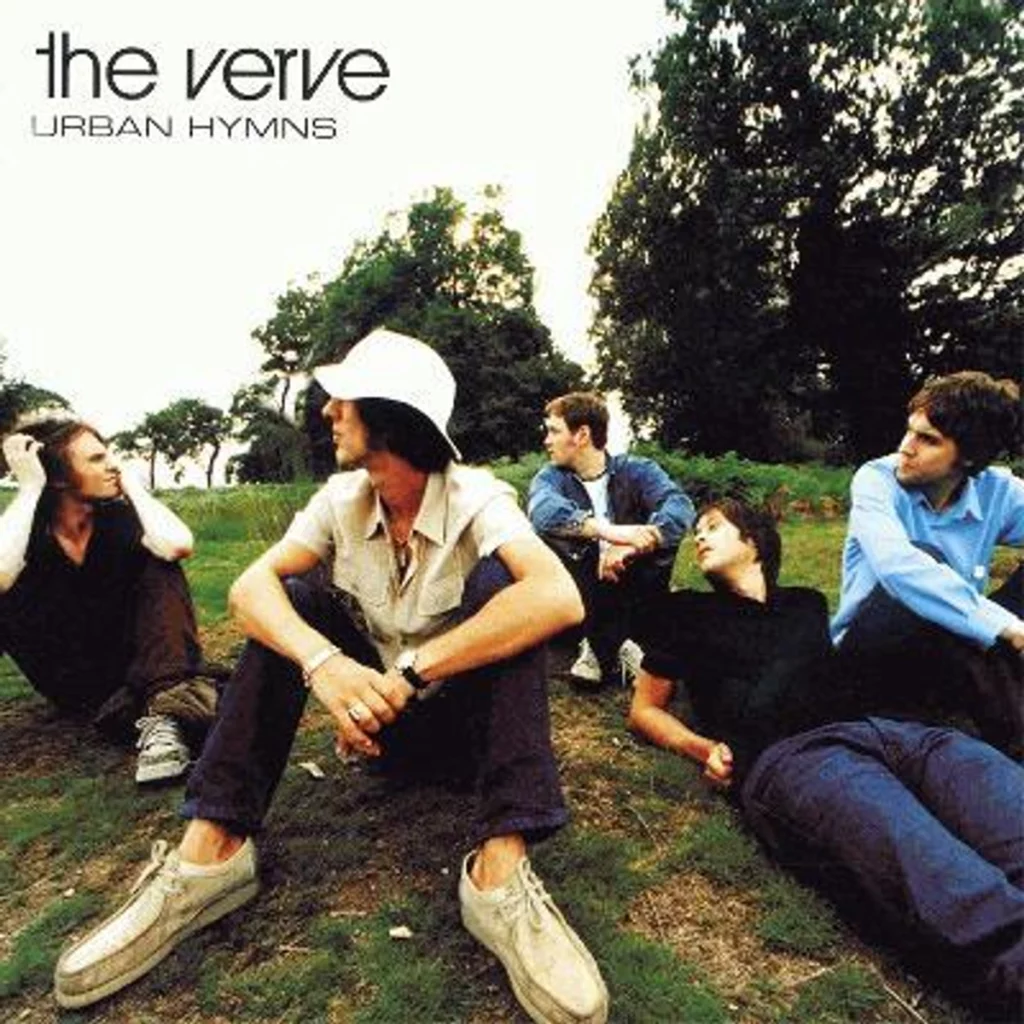
IV. The Sonic Innovators: Modern Marvels
A. Elbow: From Indie Roots to Orchestral Heights
As the 2000s unfolded, a band emerged from Manchester’s musical tapestry, epitomizing evolution and artistic growth—Elbow. Originally formed in 1997, Elbow transitioned from their indie rock beginnings to embrace a more expansive and orchestral sound that set them apart.
Elbow’s distinctive feature was the evocative and resonant vocals of Guy Garvey, complemented by the band’s adept instrumentation. Albums like “The Seldom Seen Kid” and “Build a Rocket Boys!” displayed a sense of introspection and poetic lyricism that resonated with listeners on a profound level.
Their breakout single, “One Day Like This,” became an anthem for celebrations, encapsulating a sense of hope and unity. Elbow’s ability to craft music that is simultaneously intimate and grandiose earned them critical acclaim and a dedicated fanbase.
Over the years, Elbow’s music matured, maintaining its emotional depth while incorporating orchestral arrangements that added a layer of sophistication. Their sound, which traversed from indie rock to more experimental and atmospheric territories, showcased a band unafraid to push creative boundaries.
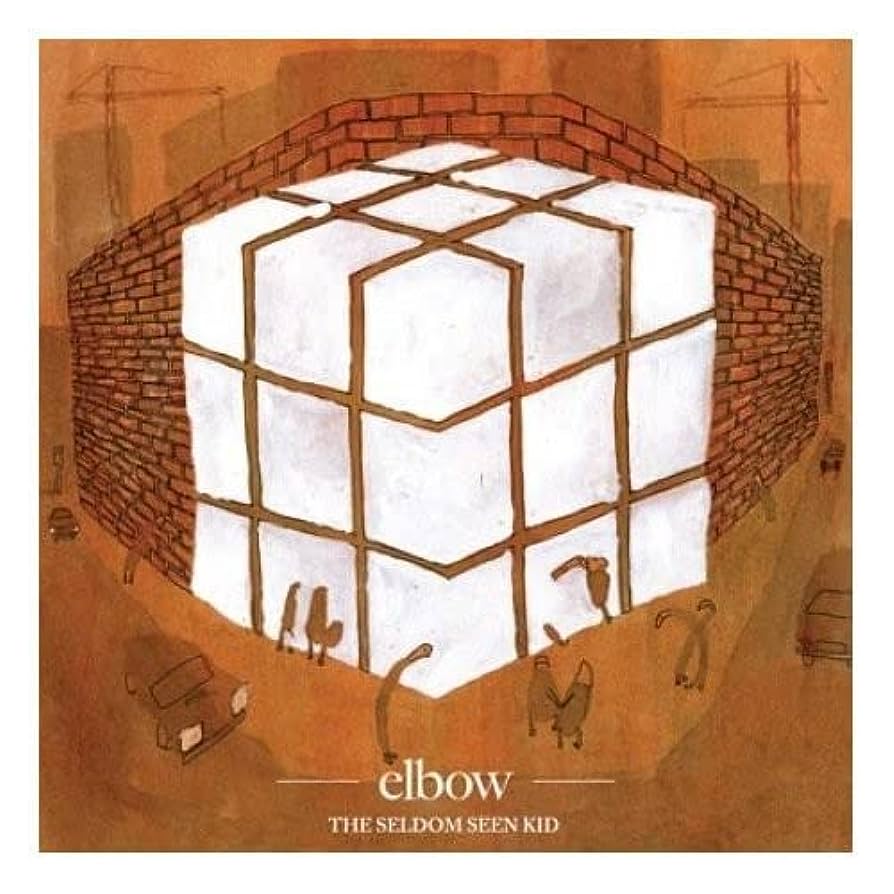
B. Everything Everything: Pushing Boundaries of Genre
In an era marked by musical experimentation, Everything Everything emerged as a testament to innovation and genre-blurring creativity. Formed in 2007, the band’s music defied categorization, merging art-pop, indie rock, and electronic elements into a complex and captivating sonic experience.
Everything Everything’s distinct feature lay in their intricate musicianship and thought-provoking lyricism. Tracks like “Cough Cough” and “Distant Past” showcased a fusion of meticulous arrangements and emotionally charged themes, earning them recognition for their forward-thinking approach.
The band’s willingness to explore new sonic territories and incorporate unconventional rhythms and melodies set them apart. Their albums, such as “Get to Heaven” and “A Fever Dream,” demonstrated their evolution and ability to resonate with audiences looking for fresh and challenging sounds.
The impact of Everything Everything extended beyond their music. Their ability to craft songs that were both intellectually stimulating and emotionally resonant contributed to a new wave of music that embraced complexity and innovation.
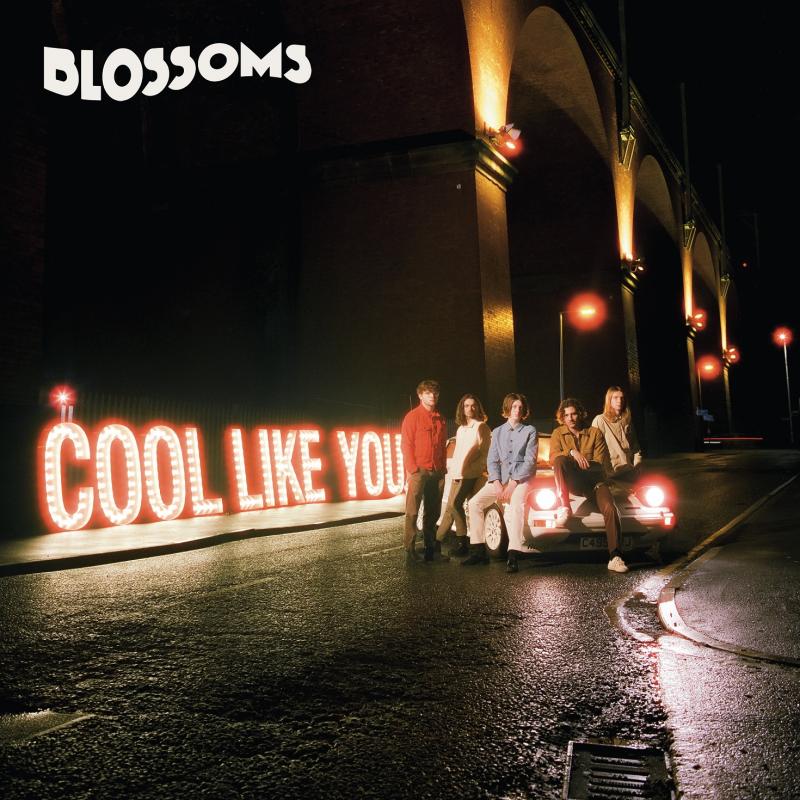
V. Manchester’s Musical Future: Emerging Talents
A. Blossoms: Nostalgia-Infused Indie Rock
As Manchester’s musical legacy lives on, a new generation of artists emerges, ready to carry the torch of the city’s creative spirit. Among them is Blossoms, a band that marries indie rock with a touch of nostalgia. Formed in 2013, their music pays homage to Manchester’s rich musical history while offering a fresh perspective.
Blossoms’ rapid rise to prominence was marked by their debut self-titled album, which showcased their knack for crafting infectious melodies and relatable lyrics. Tracks like “Charlemagne” and “Honey Sweet” garnered attention for their ability to capture the essence of youth and romance.
The band’s dedication to their craft and their nostalgic sonic palette resonated with audiences, leading to a dedicated fanbase and critical acclaim. Blossoms’ music offers a contemporary take on Manchester’s signature sound, creating a bridge between the city’s musical past and its future.
B. Cabbage: Punk Revival with a Modern Twist
Embracing the punk spirit of rebellion and dissent, Cabbage emerged as a force that injected a modern twist into a classic genre. The band’s formation in 2016 heralded a revival of punk influences, intertwining political and satirical lyrics with a gritty sound.
Cabbage’s music is a commentary on contemporary issues, unafraid to tackle political and social themes head-on. Tracks like “Gibraltar Ape” and “Terrorist Synthesizer” showcase their raw energy and commitment to using music as a platform for expression and reflection.
Their live performances are renowned for their energy and engagement with the audience, mirroring the punk ethos of direct connection and participation. Cabbage’s music stands as a testament to the enduring power of punk to challenge norms and provoke thought.
As Manchester’s musical landscape continues to evolve, bands like Blossoms and Cabbage exemplify the city’s commitment to artistic innovation and cultural relevance. These emerging talents demonstrate that Manchester’s legacy is not confined to the past; it lives on through the sounds and voices of those who continue to shape its musical narrative.
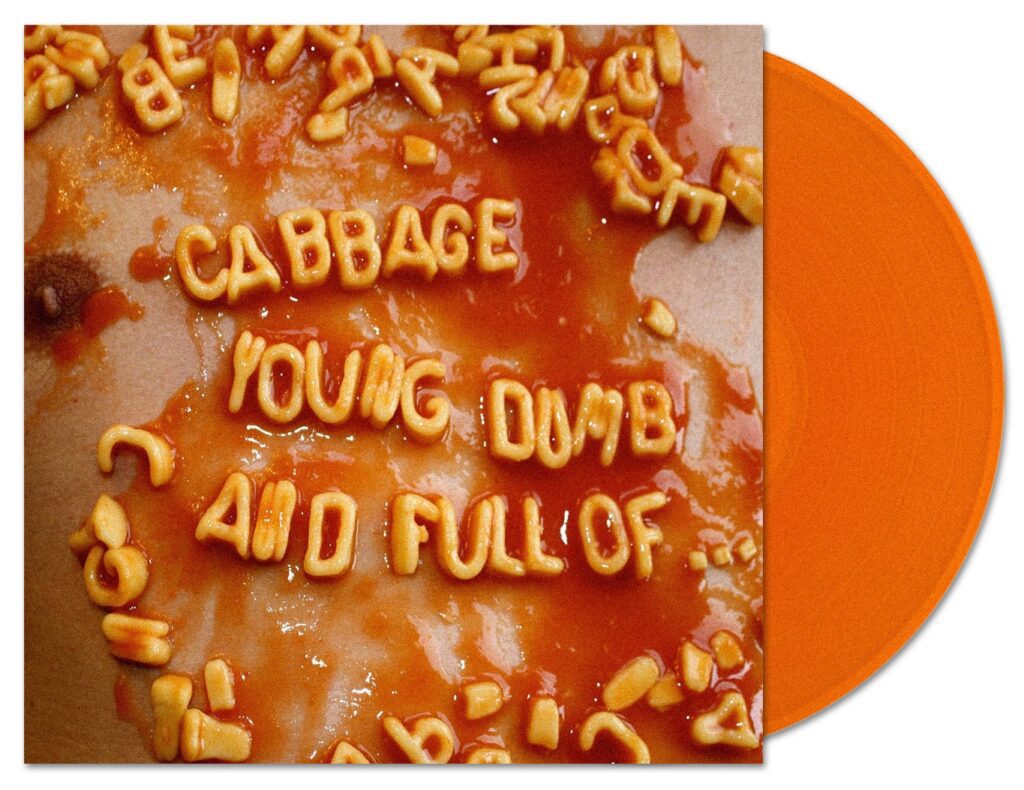
A Sonic Tapestry of Diversity and Evolution
Manchester’s musical journey is a tapestry woven with threads of innovation, rebellion, and a commitment to pushing boundaries. From the pioneers of post-punk to the anthems of Britpop, and the sonic explorations of modern marvels, the city’s bands have left an indelible mark on the world of music.
Each era brought its own flavour, yet Manchester’s sonic legacy remains a cohesive testament to the city’s creative spirit. As newer talents like Blossoms and Cabbage rise, they bridge the gap between the past and the future, reaffirming Manchester’s status as a wellspring of musical inspiration and innovation. In a world where sounds continue to evolve, Manchester’s influence is a constant, shaping the melodies that soundtrack our lives.


